There’s no doubting the need for us to take alternatives to fossil fuels seriously. However the reality of using, say an electric vehicle, doesn’t always live up to the hype. Take the example of one pure electric car driver Geoff Hands, a chap who featured in a very interesting article in the Sunday Times recently. He wanted to make a trip to a garden centre, 110 miles away from where he lived. To do so, in his Hyundai Ioniq, he had to first download five different apps to help him locate charging stations and then use them. On his journey he visited six charging stations but only one had a fast charger. The shortest time Hands spent at a charger was an hour; the longest two-and-a-half hours. His journey time to the garden centre and back was a staggering 11 hours and he told the Sunday Times he would have been quicker going by stagecoach. After his terrible experience, he took the car back to the dealer and traded it in at a loss for a petrol electric hybrid.
While electricity will certainly be a (driving) force to be reckoned with one day, we’re not quite there yet, despite what they say in the wider media. Only last month much of the mass media carried the story that there are now more electric vehicle charging points than petrol stations in the UK.
Brian Madderson, chairman of the Petrol Retailer’s Association, says that while recognising that the uptake of EVs is growing, it is still extremely slow and government/industry/media/consumers need to keep the real situation in perspective.
"There are nearly 70,000 petrol/diesel dispensing positions for cars/vans on approximately 8,400 petrol forecourts across the UK. These could easily each fill six car fuel tanks per hour. That equals 420,000 cars filled in an hour. Each car with a full tank can travel approximately 400 miles meaning that in just one hour UK petrol forecourts can provide the fuel for cars to travel 168 million miles.
"By comparison, the latest data from the Zap Map website (August 2019) suggests there are only 14,886 EV charging devices in the UK at 9,400 locations and if they could re-charge two cars per hour to a satisfactory level (unlikely) that equals 29,772 EVs charged in an hour across the UK and if they could cover 200 miles on each charge (again unlikely) they might be able to cover around six million miles, which is about 3.6% of the potential of liquid fuel driven vehicles dispensed from petrol stations."
varying outputs
Madderson says none of this takes into account whether, like petrol/diesel dispensers, the EV charging devices are compatible with all vehicles, nor whether the varying power outputs of the charging devices affect the time period for which the EV has to be connected to achieve enough of a charge to give them a reasonable distance they can travel.
"While we recognise that the uptake of EVs is growing, we need to keep the real situation in perspective. This realistic comparison and assessment shows that government must do much more to grow the EV charging network before UK consumers are persuaded to fully adopt alternative fuel vehicles in mass numbers."
Meanwhile, at a recent conference organised by the Westminster Energy, Environment & Transport Forum, Jon Hunt, manager, alternative fuels, at Toyota, told delegates why, as the world’s biggest automotive manufacturer, Toyota had not pushed further with full battery electrification.
He explained that there are a number of challenges. "It’s not that battery electrification isn’t important," he said, "but you’ve got to recognise that customers need to have their services provided for them in whatever type of mobility they require, you have to think about the resource impact of how you’re producing something and also the charging impact. If you need more power then you need more energy to be delivered to the point of consumption, and that means turning on inevitably probably more fossil fuel energy production.
"Battery life is a concern how long will they last, can you recycle them? Lithium ion essentially must be incinerated at the end of its life. And, of course, you think about range, so a bigger range means a bigger battery, but that means more impact on resources and energy and so forth."
impact on resources
Hunt said that the impact of the resources required to produce lithium ion batteries was often ignored. "This is the issue of the cobalt and the lithium, where it comes from, the social impact, the environmental degradation and also in the cost of the energy and emissions to produce those batteries as well, and finally, of course, in recycling. It is extremely important, and what we believe is that you must minimise your battery and you must look at new technologies in terms of batteries that avoid these. Solid state batteries, for which Toyota has three times more patents than any other company, is where we will be looking, but this is a development that will occur."
In the meantime, Hunt’s answer was a transition, with plug-in hybrid and hybrid vehicles essential during this transitional period to help reduce emissions by a quarter. And also hyrogen fuel cell vehicles, which Hunt said are brilliant for passenger cars, and even better for heavier transport.
"This transition will occur, this transition is not just Toyota saying so. In the Global Executive Summary by KPMG this year, 79% of executives said they believed fuel cell vehicle technology is the future for electric mobility. China has moved now into this area investing huge resources.
"So it is not just the world’s largest motor manufacturer suggesting this, it is the global automotive sector as well."
Meanwhile, back in the here and now, and UKPIA’s recently published Statistical Review 2019 found that there were 31.5 million cars on the road in Great Britain last year and of these 58.7% were petrol-fuelled and 39.3% were diesel-fuelled.
Just 1.7% were hybrid vehicles and the remainder were fuelled by LPG, other gas or were electric.
As for fuel volumes, petrol sales in 2018 amounted to 15.7bn litres, which was down from 16.1bn litres the previous year. Diesel sales in 2018 were 29.5 bn litres, down from 29.7bn litres in 2017.
UKPIA reports that the UK again enjoyed the lowest pre-tax price of major brands of unleaded petrol in 2018 (compared to other European countries) at an average of 0.53. However, as ever, fuel taxes added considerably to this.
new car sales
As for new car registrations during 2018, there were 2.3 million, which was down for the second consecutive year.
There was a sharp drop in diesel registrations from over a million in 2017 to 750,000 in 2018. Alternative fuel vehicles saw an increase accounting for 5.9% of new car registrations, up from 4.6% in 2017.
The most recent SMMT (Society of Motor Manufacturers and Traders) data available, for July 2019, reveals that registrations of diesel vehicles fell for the 28th month, down -22.1%, while petrol vehicles remained stable, with 2,646 more registrations than in July 2018.
Hybrid electric cars increased by a substantial 34.2%, with 7,758 of these joining UK roads. Meanwhile, plug-in hybrid electric vehicles continued their recent decline, down -49.6%. Demand for battery electric vehicles shot up by a massive 158.1%, resulting in a 1.4% market share, the highest monthly market share on record.
SMMT forecasts that investment into new, advanced powertrain technology will result in battery EVs doubling their market share next year, with 51,000 registrations in 2020. However, this will still represent only 2.2% of the overall market.
retailer view Rob Exelby, Exelby Services:
"As a Shell retailer, we sell V-Power fuels at sites where we have tank capacity available. We’re also planning tank additions to introduce V-Power at our other sites.
V-Power accounts for approximately 15% of retail volume. Sales are steady year-on-year but have increased noticeably over the past four years.
"We are selling V-Power to people with expensive cars as well as those with more ordinary cars who want to look after their engines. We sell more V-Power diesel than we do unleaded which I think says a lot. I think the majority of premium customers are those who have a relatively high level of disposable income who take pride in their cars, want to look after their engines and are loyal in particular to the Shell brand. Then, of course, you have your super car drivers and we get many Porsches, Aston Martins and Ferraris on weekends who probably don’t even take particular notice of the extra price of V-Power fuels. We use media screens on our pumps to showcase Shell’s media on the benefits of their V-Power fuels. We also have posters and run regular promotions on V-Power.
We sell AdBlue supplied by Air1 to all of our HGV customers and we’re looking at introducing AdBlue dispensers on our car forecourts also. Sales are still increasing year on year as the introduction of Euro 6 and future Euro 7 engines have a higher requirement for adblue.
As for electric charging we must have had more than six proposals from various providers from Tesla to Allego over the past three years but we’re still waiting for the right deal given the very slow uptake of electrification in the UK.
"There is no financial model for our own investment that works yet for the retailer without funding or subsidies. We’re still talking to a small number of big providers but as yet, we haven’t seen anything yet we’re prepared to sign."
retailer view Kevin Cundall, Jet Chidswell Service Station, Dewsbury:
"Our site was recently re-imaged and offers the new Jet Ultra Premium Diesel, with the price displayed on the pole sign. We first introduced premium diesel in 2015 with the intention of hitting a broader audience. Of the site’s 18 nozzles, six are now Jet Ultra premium diesel, which accounts for 5-6% of total fuel sales.
"Over the last 18 months we’ve seen a slow but steady rise in demand for premium diesel as customers have become more aware of the advantages of premium fuels.
"I’m confident that the new branding and superior product will help to encourage customers to try the product for the first time and then hopefully make the permanent switch to being premium fuel customers.
"At present we don’t have any plans to introduce JET Ultra premium unleaded because we’d need to install a new tank, which has cost and operational implications.
"There’s still an opportunity to improve consumer awareness of premium fuels and how they differ from standard grades and this is something that we know Jet is working on."


















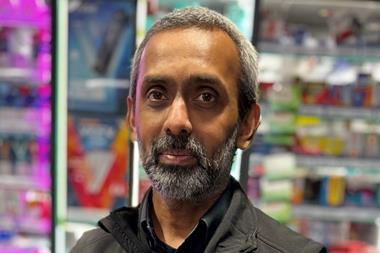
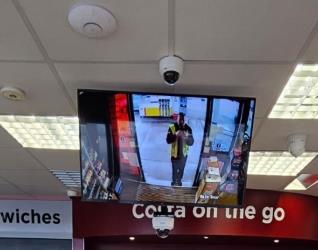
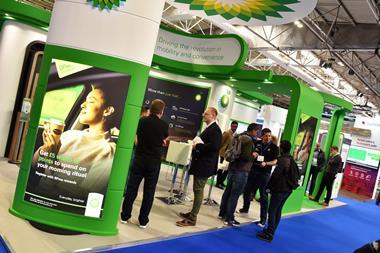
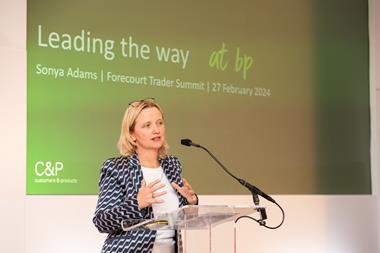
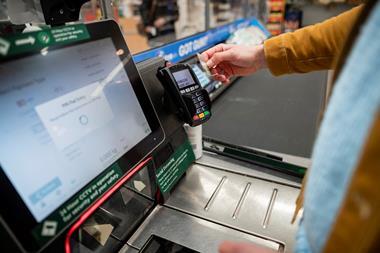
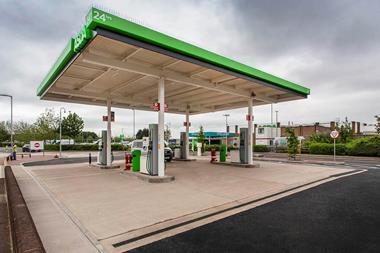
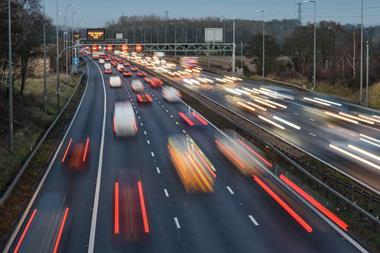

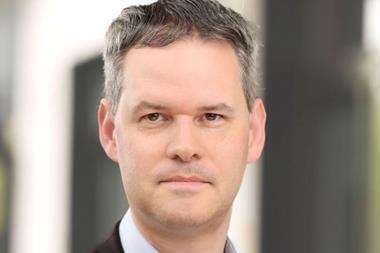
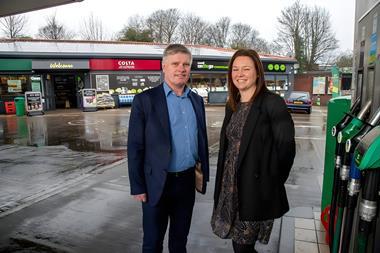


No comments yet